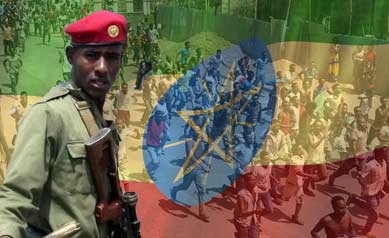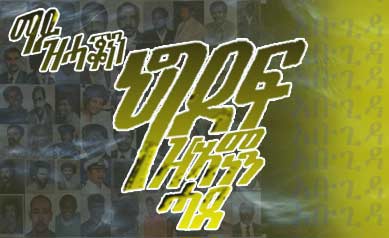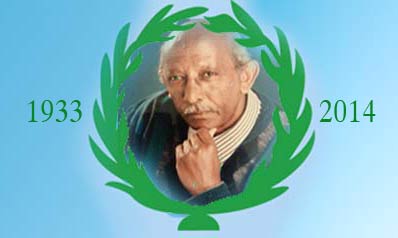Viewpoint: Events In Ethiopia

It has been over a year since the widespread public unrest erupted in the Oromia state of Ethiopia. This year, the simmering conflict between the Amara and Tigrai regions over parts of Welkait also erupted. While the Ethiopian government is now facing the two problems, Ethiopians and others are engaged in serious (and heated) debates over at awate forum. Many insightful analysis of the situation, and brilliant ideas on how the crisis should be addressed or resolved were posted on the Awate Forum; today, we are presenting to you one such comment by Fanti Ghana.
Wolkait:
This may be surprising but there is no Wolkait identity issue raised by Wolkait let alone fight about it. Their identity question was addressed and settled 25 years ago. However, there was and still is a farmland issue raised by their immediate cousins and neighbors in Amhara Kilil, which started many years ago. The talks were interrupted by the war with Eritrea and it never was addressed since. In either case, regardless of who raised the Wolkait question, the Federal government has ordered the Tigray and Amhara kilil administrators to address and solve the Wolkait identity and Tsegede farm land question according to the laws already in place that were designed to address these very issues. Luckily, that law predates this problem.
Oromia:
Equating the rejection of the so called “Master Plan” by Oromia with shortcomings of ethnic federalism [EF] is a mistake. The Oromos had already raised a much more complex question years before that already. Like all Ethiopian Ethnicities of the time, including Amhara, under EPRP umbrella, had already raised arms to fight injustices related to ethnic based discrimination including with the possibility of seceding from Ethiopia in the non-Amhara’s case. If nothing else, I believe EF saved Ethiopia and not the other way around. Even EPRP which eventually, through some rough roads, became the ANDM we know today, had “ethnic equality” as one of its core principles. So, it is safe to say that all Ethiopians of the time struggled for “ethnic equality” among other issues. Whether EF has overlived its usefulness is a different matter, but let’s not condemn it for behaviors it did not create.
It is a mix bag of sorts but here is my combined response from what I have learned in the last few days:
As tempting as it is, it is very important that we distinguish between what some of us want, what the majority of Ethiopians want, and what is workable. To speak for myself, nothing would make me happier than to see a borderless and ethnic-blind Ethiopia before I die. But there are too many signs that show we are not ready yet. The nation as a whole is not ready for it. We will get there someday soon for sure, but not yet.
As an example, out of the 3,000 representative Ethiopian youngsters PMHD talked with last week, not even one soul raised EF-related question whatsoever. Whether that is a sign of acceptance of the status quo or a sign of its presence or absence is immaterial to this generation is open to interpretation but, in either case, it doesn’t seem to bother the youth. Except those representing the opposition who demanded for the release of their “political prisoners,” most of the questions were about youth unemployment and similar issues.
What EPRDF and the rest of us must fight for:
- We all must reject ethnic-based negative statements in private or in public.
- Bring the question of federalism to the open, if needed, as a separate issue and peacefully instead of diluting it by bringing it up whenever there is, and along other, crisis.
- Reject direct or indirect association of past ethnic strife with Amhara. The fact that ethnic-based discrimination was not as prevalent in Amhara as it was in the rest of the country does not make Amhara responsible for its creation.
- Get rid of the parliament election system. Something like the USA’s congress and senate system is much more democratic than what we have today.
- Kilils [states] should be given a periodical questionnaire to ascertain their readiness for geo-based admin instead of EF. It is important that it comes from the people than a few elitists speaking for them. The federal government should hold an annual meeting and discussion about the possibility of geo-based zoning than what we have today.
- We must vehemently condemn the shooting of demonstrators with live bullets regardless of whether “trouble makers” are embedded within or not. All loopholes that allow the security police to shoot at civilians such as “if your life is in danger, shoot” must be closed.
- Reject statements like “TPLF-controlled EPRDF/Gov…” Not only it is a domineering statement to most Ethiopians who fought hard to get where they are but it is also a misrepresentation of how EPRDF conducts its policies.
- There is no doubt that TPLF had the upper hand in military power when they wrestled power from Derg. What it did almost immediately after the removal of Derg was to layoff as many TPLF rank-and-file fighters as was practical and slowly but surely started to rebuild rank-and-file representative of our federation. That part is fairly accomplished as of recent. Why there are disproportionately Tigrean generals is a matter of experience. Not only they could be needed in a moment’s notice in this hostile region of ours, but also it is important they transfer their experience based knowledge to the generals of tomorrow. Although it is understandable why some Ethiopians feel uncomfortable with it looking outside in, but it is important to recognize the higher purpose EPRDF is trying to accomplish. Short of handing it back to Derg generals, there is no choice but to wait it out.
- Given the amount and complexity of the corruption now prevalent in our nation, unions such as EFORT and others who claim to be conducting a legitimate business under the law must make their board of directors, members, and their finances public or nationalize.
- Let all high government officials who own high-valued companies or are a member of board of directors of such companies either resign their position or volunteer their share to the federal government to be reassigned as an owner operated companies by or to benefit selected Ethiopian youth.
- Avoid statements that are not useful or fact-based such as “TPLF/EPRDF is dead now,” “they are in trouble now.” It accomplishes nothing except feeding into why some of us think that EF is still necessary. If Ethiopians reject EF today and embrace Geo-based zoning it doesn’t mean TPLF’s failure but its success. Starting from the advent of the TPLF Central Committee split, to the most recent North Gonder and Bahir Dar demonstrations, TPLF has been killed and buried more than a dozen times by the good and the bad alike. Why is Ethiopians’s assertion of their right translated as the death of TPLF?
- We must recognize the political facts of our region and recognize when we are targeted by foreign agents using our own ills. There are tangible clues to simply rule it out as the government’s search for a scapegoat.
I had many more things to say, but I must stop. I will live you with a very short but to the point speech by a young lady I was impressed with. It was a bitter sweet for me because she doesn’t seem to like ‘Weyane” but I loved her message to all of us wholeheartedly.



Awate Forum